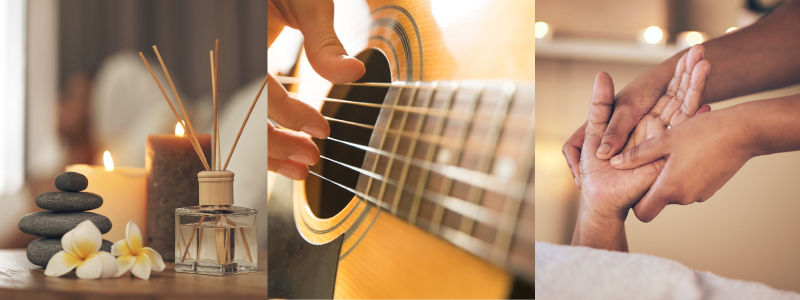

When someone is nearing the end of life, they might have many different problems, such as pain, trouble sleeping, worry, or sadness. Along with regular medical care, complementary therapies are helpful in treating these issues.
Complementary therapies include things like aromatherapy, relaxing massages, calming music, or spending time with a loving animal. These therapies focus on taking care of the whole person – mind, body, and spirit – to make life better for patients.
Benefits of Complementary Therapies
Better Communication
Complementary therapies help patients and their families talk and connect with each other. They also offer a way to share feelings, strengthen relationships, and experience moments of calm and happiness.
Empowerment & Personalized Care
We encourage patients to be involved in their care. This helps them make choices that match their values and beliefs, making them feel more in control of their situation.
Easing Pain and Suffering
Complementary therapies help ease physical, emotional, and spiritual pain. They can reduce stress and anxiety, improve mood, and increase relaxation and comfort.
Respecting the End of Life
Complementary therapies focus on improving the quality of life so patients can experience peace, dignity, and comfort.
Caring for the Whole Person
By adding complementary therapies to end-of-life care, we can provide a more thoughtful and caring experience. We take care of the whole person – their body, emotions, and spirit. This way, we can help patients and their families make the most of their time together.
